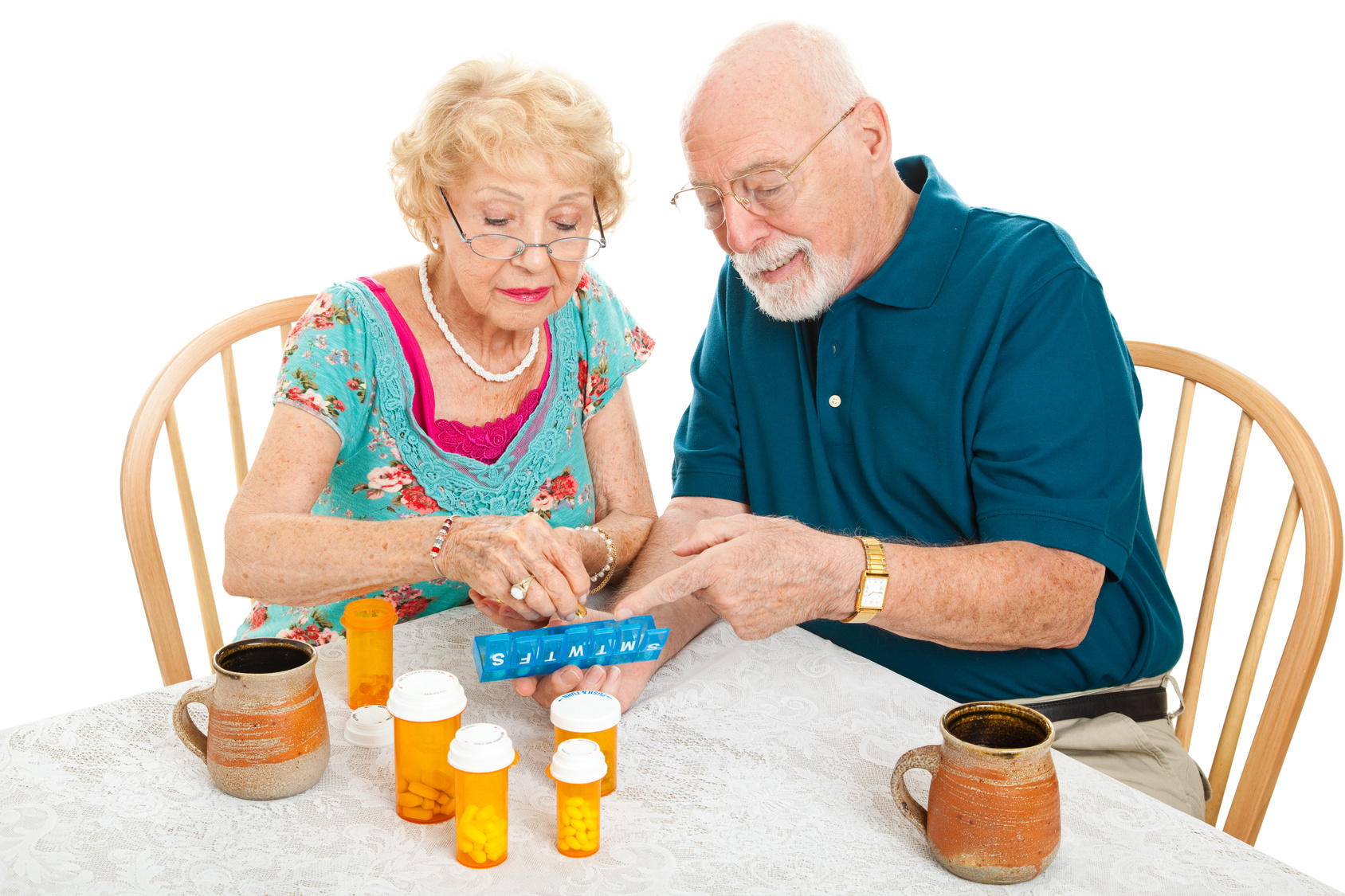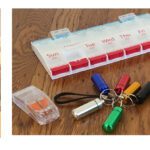By: Rich Freedland | Posted: January 3, 2017 | Updated: April 25, 2023
Introduction from the editor
“Good” medication management is widely believed to be desirable, by older adults as well as by clinicians. And difficulty managing their medication regimen is often cited as a common cause for premature institutionalization of older adults.
In response to this perceived opportunity, industry has produced a wide range of different medication management systems. But for a given individual, it can be very unclear whether one of these products will really make a difference, and more importantly which of the many possible “features” are likely to actually be useful for that individual.
In this article, entrepreneur Richard Freedland describes what factors make different medication management systems useful for a given person, and outlines a series of circumstances for which specific features of these products can be helpful. Think of this as a “how to get started” guide to the topic of systems for managing medication.
We all miss doses
Everyone who takes medication misses doses. The most common reason is a change in daily routine. Someone might miss a dosage because they’ve gone out to dinner, or because their favorite TV show was preempted that evening. Others do not take their medicine correctly because of the complexity in following the instructions. Even separating out pills to be taken on an empty stomach from those to be taken with food can be quite a bother, especially in the morning.
A medication management system can be very useful to combat this confusion and make the entire process easier. But just how important is perfection in managing medication? The answer is, as it is so often, “It depends”. Read on for the details.
Which medication management system is best? Six factors help decide.
There are six main factors to consider when selecting a medication management system for a given individual:
- criticality (how important is this medication to my health?),
- quantity (how much medication am I taking each day?),
- timing (how often do I take medication?),
- portability (how often am I away from home when I need medication?),
- ease of adherence (how simple are the instructions?), and
- change (how often does my dosage or medication change?).
Let’s look at those factors more closely.
Criticality:
The first consideration in managing your medication is knowing the medication’s importance to your health. Heart-related treatments, blood thinners, and medications for other serious conditions have a high degree of criticality, while vitamins have a low degree. The more significant the medication, the more likely a device that offers reminders or alerts will be of value.
Quantity:
Just dealing with the logistics of handling a variety of medicine bottles and supplements can be overwhelming and time-consuming. While a large number of supplements may not be critical, the sheer quantity may warrant having a device for storage and easy dispensing.
Timing:
Some medications, such as antibiotics, must be taken on a strict schedule. Knowing the protocol is important. For some medications, a missed dose should be taken as soon as it is remembered. For other types, missed doses should just be ignored. Not all medicine-management devices make it easy to follow these protocols. Some, for example, make it difficult to take a single medication out of schedule.
Portability:
Adults who are regularly on the go and will often be away from home for pill-taking periods may require a portable device. Those who spend weekends in different locations may need either a portable pill organizer or one that offers the ability to dispense medication for future use.
Ease of Adherence:
The effectiveness of a medication—that is, its ability to maintain or improve one’s health—is directly tied to taking the medication as instructed. Some medications cannot be taken with certain foods, while others must be taken alone. If a doctor dictates that a medication cannot be taken with grapefruit, for instance, it’s because grapefruit will nullify the medication’s effect. The more involved the instructions, the more need there is for a method or device to manage that medication. Several devices that will be discussed below display the special instructions associated with the medications they are dispensing.
Changes:
Medication regimens or schedules can often change, especially if you are living with a chronic condition or undergoing frequent medical tests or monitoring. These changes require easy access to the medication at all times, not just when it is dispensed for pill taking.
Additional Questions:
Medication management systems vary widely in features and benefits. In addition to considering the above six factors, you might consider the related questions below, which can help assess which solution will work for you:
- Do I need an audio and a visual alarm each time I need to take my medication?
- How many different pills am I taking?
- Do I want internet connectivity so someone else can be notified when I miss a dose?
- Would it be nice to have my medication with me when I’m not at home?
- How often does my regimen or dosage change?
As the number of medications or supplements you take increases, it will be easy to move toward additional features to help keep your medication adherence consistent. That’s the point of all these tools, devices, and aids: to help you take all your medication as directed, so you may be blessed with good health.
Different Medication Management Systems for Different Needs.
Let’s look at different medicine-taking situations.
[Note about the links that follow: The links below all link to different pages on this website. Many of them are to listings in our “Resources” section of the individual products. If you want to learn more about a specific product follow the links. On our Resources page there will be a description but also a link to the manufacturer’s website if you want it.]
Noncritical medications vs. critical medications:
If you are taking a small quantity of noncritical medications and supplements, the simplest tools will suffice. There are hundreds of smartphone applications oriented to medicine management. Their value is in providing reminders and allowing you to compile a readily available list of your medications. A sound or vibration will alert you to take a specific medication at that time. An examples is Pill Monitor by Maxwell Software, available from the Apple App Store. Another example is MedCoach Medication Reminder by GreatCall, available from the iTunes store and Google Play.
Editor’s Note: One of our colleagues has done some deep-dive analysis of Pill Reminder Apps that you can read at:

An alternative to reminders and alerts is a smart pill bottle whose cap has an LCD clock that counts the hours and minutes since the bottle cap was last twisted onto the bottle. This indicates when the medication was last taken. This is especially helpful for pain medication, where there is a risk of overdosing. The timing caps, made by TimerCap LLC, come in all common pill bottle sizes. They can be found at many pharmacies including RiteAid, Tops, Giant, QFC, Martin’s and CVS.
If you are taking a small number of critical medications, you may want medication-specific reminders. Adhere Tech, for example, has a product that replaces the pharmacy’s pill bottle with one that is connected to the internet. The AdhereTech smart bottle can alert the user to take the medication via lights on the bottle (no longer sold to individuals). It can also send a message to a caregiver if a dosage is missed. Each use of the bottle is recorded, so there is a complete log kept of when that medication has been taken.
Taking multiple medications every day:
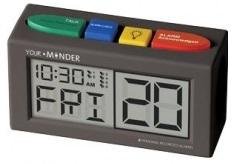
At some point, if you are taking several medications at a time, you may want more technical assistance. If you only need to be reminded that it is time to take pills, a simple alarm clock may suffice. MedCenter offers a medication alarm clock called Your Minder, which features a large digital screen with a loud speaker.
For people taking several pills three or four times a day, CompuMed offers a tamper-resistant medication dispenser that stores a week’s worth of multiple medications and provides alerts. An optional padded carrying case makes the unit portable. There are many companies offering these weekly medication storage devices that provide alerts. But none are internet-enabled, so they don’t keep records of medicines taken or notifications to caregivers.
The travel-friendly packet approach:
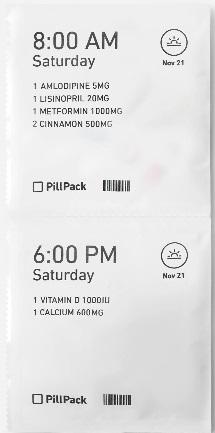
A completely different approach for those taking a nominal amount of medication, four to eight pills at a time, is PillPack. With this system, the pharmacy provides a month’s worth of medication, with pills sorted into packets. Each packet is labeled with a date and time for taking those medications. The packets are contained on a roll, in chronological order. This is an excellent system if changes to the regimen are unusual or rare. It also has advantages if you regularly take trips away from home. Simply roll out the necessary medication packets needed for the trip.
Parata Technology offers pharmacies a similar solution, called PASS Packs. Several pharmacies have instituted similar programs, such as Klein’s Pharmacy’s Doc-U-Dose. Other pharmacies that offer a packet approach are Eatonform Healthcare Products and MedEx Direct. The packet approach eliminates one of the biggest causes of medication errors: human error in loading a weekly pill tray.
Samsung and partner DayaMed have taken the packet approach a step further by inserting the roll of medication packets inside an automated dispenser. The system is called MedPOD. It is small, portable, and capable of cell-phone communication. It can also connect with biometric devices via Bluetooth to help you with as-needed medication. MedPOD also stores your medical history—an added benefit.
Six pill bottles are cumbersome:
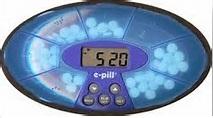
If you are taking six or more pills at a time, handling all the pill bottles can be very cumbersome. A device that stores medication and can provide an audio and possibly a visual reminder has the benefit of reducing the handling of pill bottles.
The smaller of these devices hold one week’s worth of medication. Med-E-Lert is one example. It has twenty-eight compartments and can be programmed for medication taken from once to six times a day. It will sound an alarm for thirty minutes if medication is not taken at a programmed time. It also contains a blinking light for noisy environments or for the hearing impaired.
Other weekly devices like the Turtle Weekly Pillbox and a similar product from eNNOVEA are available from Amazon or e-Pill.com. A variety of similar devices are sold by VitaCarry online and at Walmart.
These products contain only seven compartments, but they allow multiple alarms each day. This will work well as long as your pills look significantly different and you know which medication you need to take at each alarm. For example, these systems will not work if you take multiple medications that are round and white, because they will all be stored in a single compartment.
Internet connectivity and alerts:
MedMinder brings alerts and pill storage to a whole new level by adding internet connectivity. The company offers a family of products with locking or nonlocking compartments and different alert mechanisms. The Jon product, for example, is a weekly storage device that can sound an alert, blink a light to indicate a specific medication compartment, and notify a caregiver when a dose is missed. It also has a communication link to a monitoring center. MedFolio provides a similarly internet-enabled device. Both companies allow for caregiver notification and medication tracking. MedFolio has a secure identification system for providing your medication history.
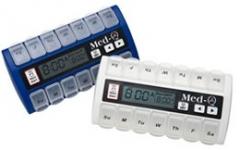
MEDQ Pill Box is designed as a single-week storage device for those taking pills twice a day. It has an audio alarm and LED lights indicating which compartment holds the pills to be taken. The compartments are removable, which helps in getting pills out. The display indicates when the next alarm is expected.
Simplemed+ by Vaica has taken those features and added an internet-communication capability. Vaica’s device can notify a caregiver when medication is not taken as scheduled and is programmable for up to four doses per day for a week. The Simplemed products use a cellular connection to a cloud-based database so no Wi-Fi or landline is needed. The pills are loaded into the device by a pre-filled blister pack or can be manually sorted into an empty tray.
Both the MEDQ and Simplemed systems require medications to be manually sorted into their appropriate compartment.
Automated pill sorting:
Most of the devices mentioned so far require you to sort pills into compartments in the device or use special trays for insertion to the device. Sorting pills is a time-consuming and unwieldy task that is prone to errors. Several companies offer devices with pill-handling methods that make this task a thing of the past.
One such device (under development) is PillBox from drPoket. The dispenser controls up to eight different medications or supplements and communicates with a smartphone, which stores information on the drPoket platform. It can be accessed by anyone with an internet connection and the proper security codes. The typical configuration holds three to eight pills. Each pill type is stored separately, and each pill is dispensed individually, as though there were eight small but identical dispensers. The advantage of this approach is that when the device is programmed properly, the units will dispense the proper pills at the proper time. [Ed note: While interesting, this product has not yet made it to market]
Storing more than a week’s worth of diverse medications:
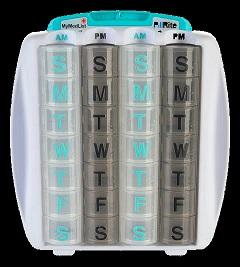
If you are taking eight or more medications and supplements each day, you may desire more assistance in managing your medication. After all, managing a lot of pill bottles is tiresome. There are several devices that store a month’s worth of medication. The simplest of these devices still require you to sit down with the medications and place them in the appropriate compartment.
One such simple device is from Pillrite. It stores a month’s worth of medication: four weeks of morning and evening daily doses. It comes with a travel bag, making it portable, and has a center compartment for storing critical medical information. It also has a patented refill reminder system. This is an ideal system if you do not feel you need reminders but take many pills twice a day.
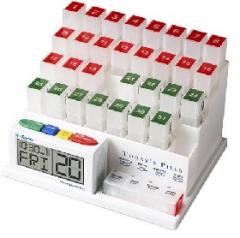
MedCenter Systems offers its 31 Day Pill Organizer, which features thirty-one small trays, each representing one day of the month. Each tray contains four compartments, to represent breakfast, lunch, dinner, and bedtime. There are several versions of the device, including some with alarm-clock functions for reminders.
Storing, sorting, and dispensing a month’s worth of medications:
Several companies have developed systems for a minimum of thirty days and include internet communication. Because of the complexity in handling a wide range of pill shapes and sizes, the loading of some of these devices still requires placing each pill in a compartment or cup to be specified for a particular pill-taking period.
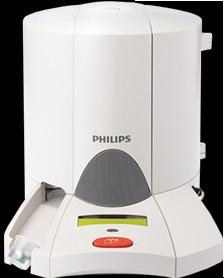
One such product is the Medication Dispensing System from Philips Lifeline. It holds sixty cups and can be programmed for up to six doses per day. The device features a locked cabinet and provides reminders. The internet-communication feature allows caregiver notification and active monitoring.
Medication Solutions by TabSafe Medical Services has a similar device, which uses large compartmentalized cartridges instead of cups. The cartridges can hold sixteen or thirty-two compartments. The basic unit holds four cartridges. The device can be programmed for up to six pill-taking periods per day and also has a locked cabinet. The internet communication has security features and can provide online reporting to you and others you’d like to share your medication activity and history.
Comprehensive, automated pill dispensers with communication and tracking:
You can get the most comprehensive level of medicine management with fully automated medication dispensers. These devices store at least a month’s worth of medication and do not require you to sort the medication into specific compartments. Each bottle of pills is poured into a designated storage bin within the dispenser—the equivalent of placing each of your medicine bottles from the pharmacy directly into the device. Medications are kept separate from one other and are only mixed when they are placed in the dispensing mechanism at the time of pill taking. These dispensers require a bit more programming but offer you peace of mind and the ability to avoid handling multiple pill bottles. Once set up, the right pills will be dispensed in the right quantity at the right time with no weekly filling of plastic trays or remembering which pills to take. These devices also offer internet communication, so they can send notifications to your medical team or caregivers or a refill reminder to the pharmacy. The communications link also means that a history of dispensed medications is readily available from a remote location.
InRange Systems markets a device called EMMA (Electronic Medication Management Assistant), which uses blister packs for loading medication (sold to businesses not consumers). The blister packs are delivered by the pharmacy. EMMA selects and then punches the scheduled medication from its blister pack into a dispensing bin. When the bin contains all of the necessary medication for that time period, the door to the bin opens and the pills can be removed.
Several companies have taken the final step of allowing pills to be poured into their device or a loading bin, making filling the dispenser with medication an easy process. The benefit of simple loading eliminates the human error in handling multiple pills and manually sorting into tray compartments. The effectiveness of these automated pill dispensers is based on the ease and accuracy of programming devices and their ability to handle a wide range of pill sizes and shapes. All of these devices are internet-enabled and offer alerts to the user, notifications to caregivers, and medication-dispensing history to anyone given access. Here are several examples:
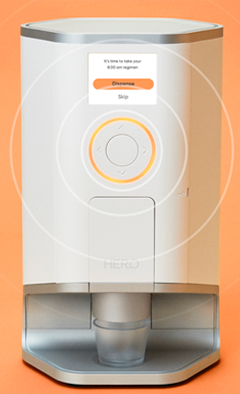
Hero Health offers a smart appliance that provides storage of a month’s supply of up to ten different pills. The device is programmed by a touch screen on the device or by a smartphone. An audio alarm and flashing light alert you when you should take the pills from a removable cup at the bottom of the dispenser.
LITE (Life Integrating Tech) recently introduced Lumma, a device for storing, sorting, and dispensing pills. Lumma claims to hold up to a three-month supply of up to twelve different pills. When it’s time to take medication, Lumma’s built-in alarm clock will ring, and the device will light up. [Ed note: This product looks interesting but does not seem to have made it to market yet].
PharmAdva sells a fully functional medicine-management system called MedaCube. The system offers a ninety-day supply of up to sixteen different medications. Pills are loaded into removable bins, which are then inserted into the device. After programming via touch screen, the device will dispense all the medications for a set time period in a non-removable cup at the base of the unit.
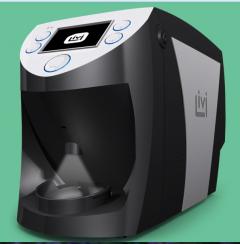
PharmRight has introduced a home-medication dispensing platform called Livi. Scheduling and real-time monitoring may be done through a cloud-based internet application. Livi is said to hold up to a ninety-day supply of up to fifteen different pills and supplements.
These fully automated pill dispensers with large storage capacities and internet communication are discussed more in depth in this article.
Learn More about Managing Medication
You can see this related material elsewhere on this website:
- Automatic Pill Dispenser Evaluation: Hands-on
- Best Pill Organizer: Older Adults Recommend
- Medication Management: Older Adult Perspectives
- Medication Management Technology for Dementia
- Best Pill Reminder App: Explorer Choice
Or, to see all our research relating to medication management, visit our Medication Management Topic Hub: Medication Management and Pill Reminder Guide.
*Disclosure: The research and opinions in this article are those of the author, and may or may not reflect the official views of Tech-enhanced Life.
If you use the links on this website when you buy products we write about, we may earn commissions from qualifying purchases as an Amazon Associate or other affiliate program participant. This does not affect the price you pay. We use the (modest) income to help fund our research.
In some cases, when we evaluate products and services, we ask the vendor to loan us the products we review (so we don’t need to buy them). Beyond the above, Tech-enhanced Life has no financial interest in any products or services discussed here, and this article is not sponsored by the vendor or any third party. See How we Fund our Work.
